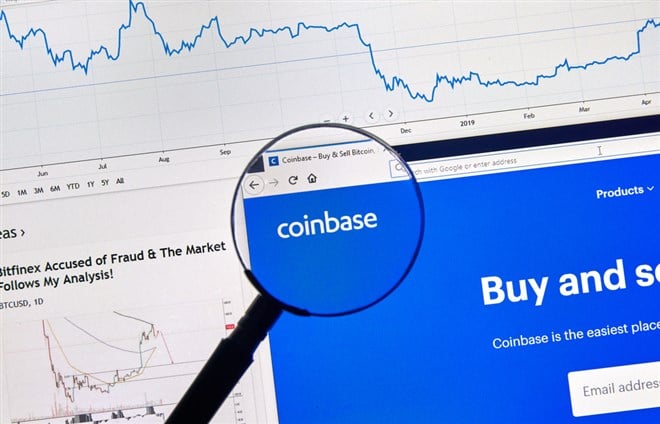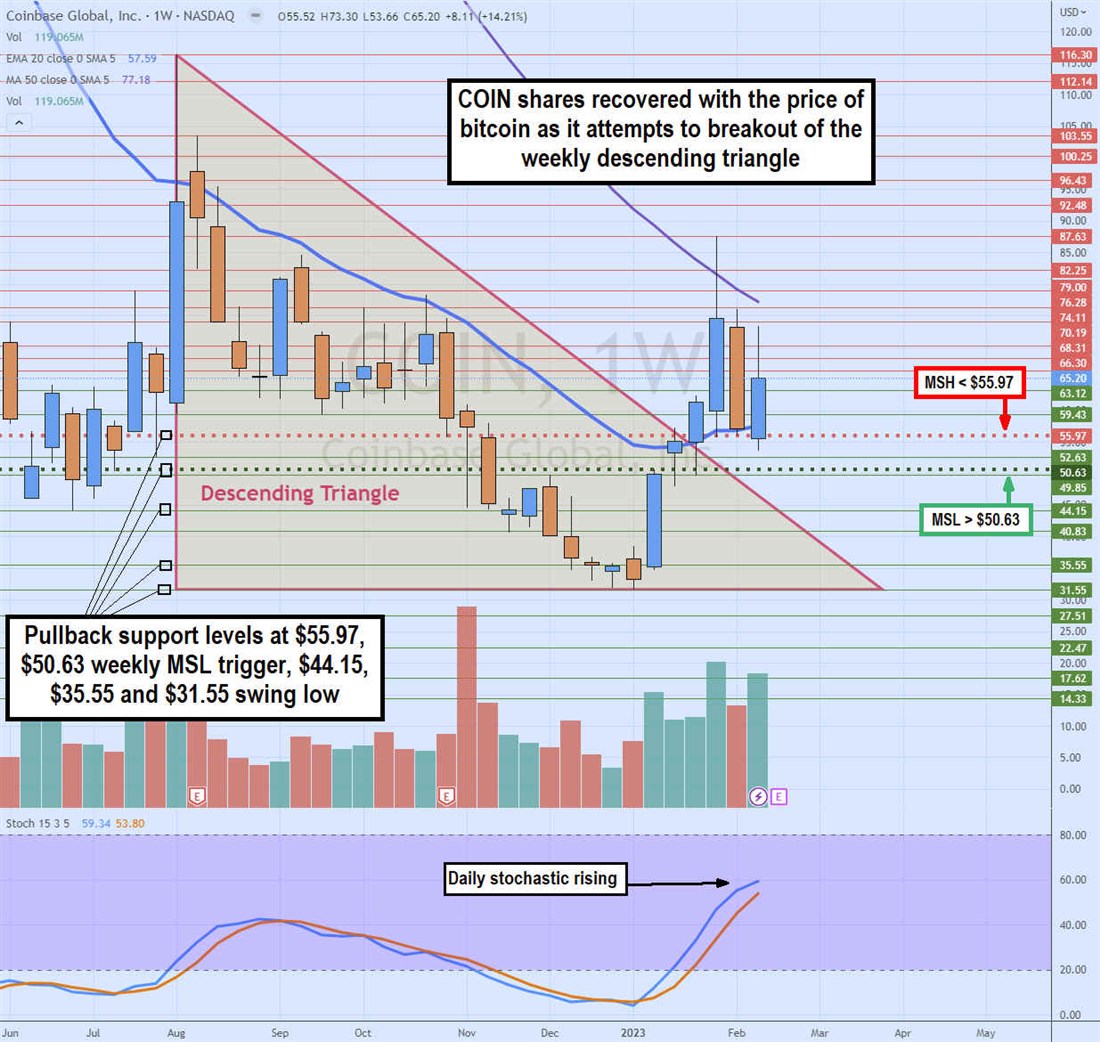
Cryptocurrency platform and exchange Coinbase Global Inc. (NASDAQ: COIN) stock has rallied 94% in 2023. While it may appear impressive, shares are still down 66%YoY, coinciding with the fall in bitcoin prices. Coinbase operates one of the world's largest crypto exchanges. Shares have rallied despite regulatory and legislative threats in the face of the FTX scandal. Coinbase has stated that it has very little exposure to FTX and is not in direct danger of liquidity or credit risk.
The bitcoin rebound to 25,000 has caused bitcoin miners like Marathon Digital Holdings Inc. (NASDAQ: MARA) and Riot Platforms Inc. (NASDAQ: RIOT) to rally 126% and 96%, respectively. Big holders like MicroStrategy Inc. (NASDAQ: MSR) have seen their shares surge 102% in 2023.
Focusing on Services
Coinbase guided down nearly all metrics but raised guidance on its subscription and services revenues to grow over $700 million in 2022. With crypto and bitcoin trading revenues down, Coinbase has focused on bolstering non-trading-related revenue streams, including subscriptions and a staking service. Staking has received much controversy and is in the U.S. Securities and Exchange Commission (SEC) crosshairs.
Staking Controversy
In the world of cryptocurrencies, staking is where you agree to have your crypto locked up in a digital wallet or through token purchase for a set period to earn passive income or "interest." It's like buying CD, where funds are locked up for a pre-determined period to earn interest.
There may or may not be penalties, and the lockup periods vary depending on the crypto or program. The crypto can't be sold or used in any transactions during the lockup period. This prevents liquidating, which means having to hold through market crashes. Some cryptos or programs don't even involve a fixed lockup period.
Risks of Crypto Staking
Staking can earn “interest” in the form of more crypto at a rate of up to 30% a year. By staking your crypto, you are enabling the blockchain to put your crypto to work. However, profits are not guaranteed. Staking protocols can fail or be hacked, resulting in theft or lost funds.
A market crash or a regulatory investigation could result in losses with no way to liquidate assets or access your funds. Some of the largest brands include Binance.US, Coinbase, Kraken, and Winklevoss twin’s owned Gemini. The payout intervals can range from daily, weekly, or monthly payouts. There are risks on many levels. The value of the crypto could fall in value when it's locked up. The crypto could get stolen. Unlike CDs, crypto staking is not FDIC-insured or even regulated.
The SEC Strikes Back
The SEC is responding to complaints from investors who believed staking to be a risk-free guaranteed source of passive income like a CD. Interest-bearing assets are viewed as unregistered securities in the eyes of the SEC. The flashy advertisements misled investors seeking a low-risk investment with a higher yield than traditional CDs.
The Gemini exchange operated by the Winklevoss twins came under the spotlight with its Gemini Earn program that lets investors earn up to 7.4% interest rates for staking their crypto.
A run on the bank from the FTX implosion caused Genesis to freeze withdrawals and halt the Earn program on Nov. 16, 2022. This locked out 340,000 customers out of $900 million of assets. The SEC charged Gemini and lender Genesis with selling unregulated securities since they offered interest-bearing assets. Investors are also pursuing a class-action lawsuit against Gemini.
Banning Staking on Kraken
Crypto exchange Kraken was fined $30 million by the SEC for selling unregistered securities and forced to stop offering staking services in the U.S. Kraken's staking service promoted potential returns of up to 24% annually for depositing/staking cryptos in various programs.
This puts other staking services on the watch for potential regulatory actions by the SEC and various agencies. At the very least, they need to be registered and provide more transparency.
Impacts on Coinbase’s Business
Coinbase proclaims to be cooperating entirely with the SEC. Staking represents only 3% of Coinbase's revenues but could be a strong growth driver. JPMorgan analyst believes the SEC enforcement action was not a one-off event but a sign of further regulation and enforcement. The question is what other crypto products and services with the SEC be targeting that could pose a more immediate threat to Coinbase and other exchanges.

Weekly Descending Triangle
COIN is breaking out of its weekly descending triangle that started in August 2022 after peaking at a high of $116.20 and plunging to a low of $31.55 in January 2023. The shares quickly rebounded, breaking out through the weekly market structure low (MSL) trigger at $50.63.
Shares continued to bounce through the weekly market structure high (MSH) sell trigger at $55.97. This perpetuated a squeeze, coinciding with the rebound in bitcoin to a high of $87.63 by the end of January 2023. COIN broke out through the descending triangle and is attempting to stay out of it as it holds above the 20-period exponential moving average (EMA) at $57.59.
The weekly stochastic continues to rise at the 60-band. The weekly 50-period M.A. is falling at $77.18. Pullback support levels are at $55.97, $50.63 weekly MSL trigger, $44.15, $35.55, and $31.55 swing low.
